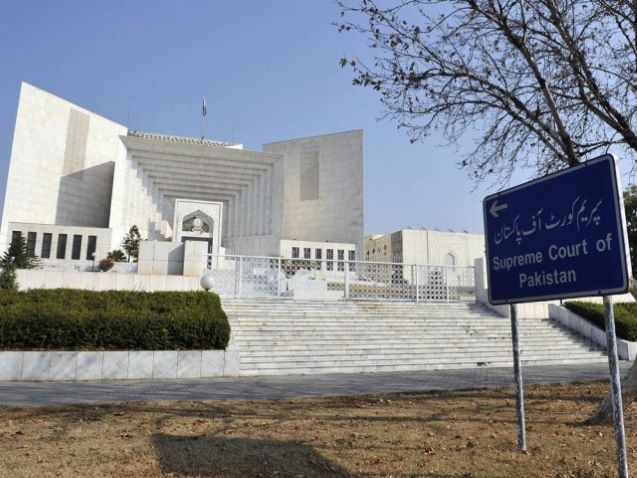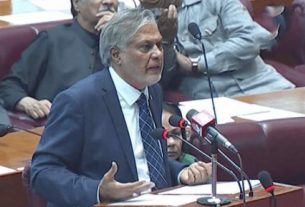The Supreme Court of Pakistan on Wednesday questioned why the military was exempted under the new National Accountability Bureau (NAB) law even though the judges do not enjoy similar exemption.
A three member bench of the apex court, led by the Chief Justice Umar Ata Bandial, was hearing a petition filed by PTI Chief Imran Khan against the new NAB amendments approved by the Pakistan Democratic Movement (PDM) government in July.
Justice Syed Mansoor Ali Shah wondered why former prime minister Imran Khan while challenging amendments in National Accountability Bureau (NAB) law didn’t object to exclusion of armed forces from NAB jurisdiction as they held the ‘biggest businesses’ in the country. During the course of proceedings, Justice Ijaz asked whether anyone was left who had not been exempted from the NAB law. Even the chairman and vice chairman of a Tehsil Council were exempted to take any decision after the NAB amendments.
Justice Mansoor observed that no decision could be stated as wrong until any financial benefit from it was proved. Apparently the government officers and public office-holders had been given the freedom to make decisions through the NAB amendments, he added.
Advocate Khawaja Haris, counsel for Imran Khan, said more than Rs 8 billion was recovered from such decision makers in the past. Upon this, Justice Mansoor asked whether the recovery was made from the public office-holders. Khawaja Haris responded that the recovery was made from those who were minting money for the public office-holders.
Justice Mansoor said every government decision benefitted some section or the other. The counsel responded that there was no wrongdoing unless the benefit taken was unlawful. It was wrong not to take action against a particular officer for giving an illegal benefit to someone, he added. He said NAB could not lay hands on any regulatory authority and government company.
The chief justice remarked that fundamental human rights should also be balanced. If there were rights of common citizens, then there also the fundamental rights of national interests and the society, and there should be a balance between the two, he added.
Addressing the counsel, he said he was linking individual benefits to those of the society. He said the court needed assistance if the cases were filed in other forums. The chief justice questioned how the NAB law was against the public interests. The counsel responded that NAB’s limit of action on corruption of Rs 500 million could be reduced to Rs 100 million. His client’s objection was application of the amended NAB law from the past.
Khawaja Haris told the court that the nature of the offense was altered through the amendment and now assets beyond means can only be investigated if commission of corruption is established.
CJP Bandial asked the legal counsel if other laws also apply to the aforesaid crimes. Corruption and dishonesty are part and parcel of assets-beyond-means cases, the CJP maintained. Justice Mansoor Ali Shah asked if it is justified to invalidate a law just for being unreasonable.
In June, Imran Khan approached the Supreme Court against the NAB amendments while arguing that tweaks to the law would help public office bearers get away with white-collar crime.__Daily Times





